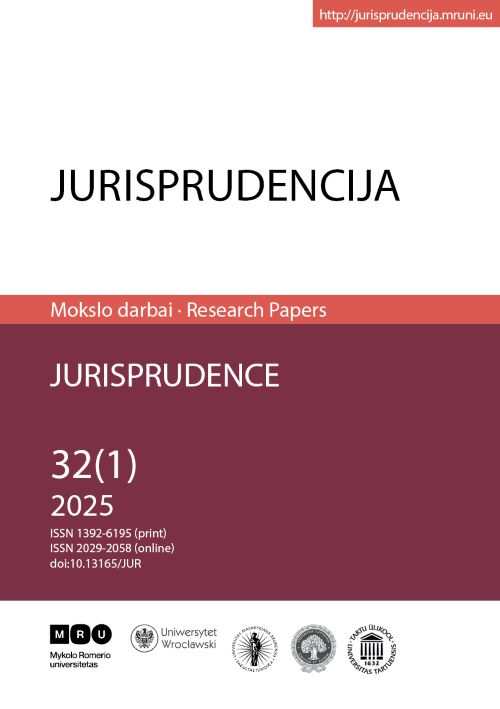JURISPRUDENTIAL DIALOGUE AND THE CONVENTION-FRIENDLY INTERPRETATION OF THE CONSTITUTION
##plugins.themes.bootstrap3.article.main##
Abstract
The article deals with the jurisprudential dialogue between the Constitutional Court of the Republic of Lithuania and the European Court of Human Rights, by demonstrating its reciprocity. On the basis of plentiful examples, it is shown how the Constitutional Court internalises the case-law of the ECtHR (at times even sets a higher standard of protection of a particular right than required under the law of the Convention). Critical considerations are provided as to whether the ECtHR is inclined and able to take into consideration the constitutional courts’ case-law and to contextualise the cases under examination; examples of the taking into consideration (or the lack thereof) are provided. The main line of the dialogue between the Constitutional Court and the ECtHR is highlighted – the Convention-friendly interpretation of the Constitution: whenever possible, constitutional provisions are interpreted so that they are in accord with the law of the Convention; virtues of this approach are demonstrated, as well as its limits in situations. where a conflict between the Convention and the Constitution may be overcome only by means of a constitutional amendment. Counterarguments are provided against the view that the Constitutional Court, when interpreting the Constitution, should not be guided by the Convention. The place of the Convention in Lithuania’s legal system and its relationship with the Constitution are highlighted and arguments are provided as to why the law of the Convention, while not being part of Lithuania’s national law, is part of her domestic law. The constitutional rule of collision, formulated within the context of the relationship between the EU law and the Constitution, but applicable to the relationship between the law of the Convention and the Constitution, is analysed. It is demonstrated that the substitution of the question of supremacy of law by the question of primacy of its application is, mutatis mutandis, characteristic of the relationship between the Convention and national law. Structural counterarguments are presented against the view that the Convention should be seen as the European constitution, and the ECtHR as the European constitutional court.
Keywords: Constitution of the Republic of Lithuania; Constitutional Court of the Republic of Lithuania; constitutional courts; constitutional case-law; Convention for the Protection of Human Rights and Fundamental Freedoms; Convention-friendly interpretation of the Constitution; domestic law; European Court of Human Rights; extra-national law; internalisation of law; judicial dialogue; jurisprudential dialogue; national law; rule of collision.
##plugins.themes.bootstrap3.article.details##

This work is licensed under a Creative Commons Attribution 4.0 International License.
This is an open-access journal, which means that all content is freely available without charge to the user or their institution. Users are allowed to read, download, copy, distribute, print, search, or link to the full texts of the articles in this journal without asking prior permission from the publisher or the author. This follows the BOAI definition of open access. Authors contributing to Jurisprudence agree to publish their articles under a Creative Commons Attribution 4.0 International Public (CC BY) License (applicable from 2025).
![]() Authors retain copyright of their work, with first publication rights granted to the Association for Learning Technology.
Authors retain copyright of their work, with first publication rights granted to the Association for Learning Technology.
Please see Copyright and Licence Agreement for further details.







